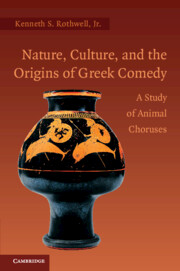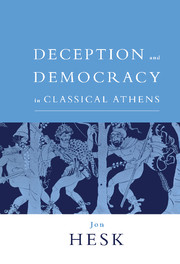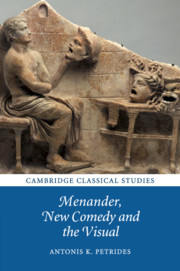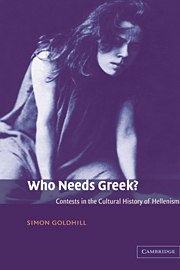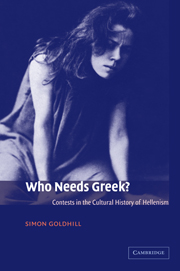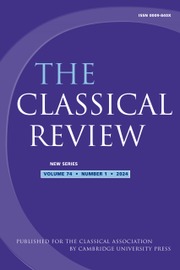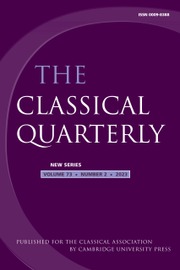Nature, Culture, and the Origins of Greek Comedy
Aristophanes' Birds, Wasps and Frogs offer the best-known examples of the animal choruses of Greek comedy of the fifth century BC, but sixth-century vase-paintings of men costumed as cocks, bulls and horses indicated that comedies were only the last phase of a longer tradition. This book suggests that although the earlier masquerades may have had ritual origins, they should be seen also as products of the culture of the archaic aristocratic symposium. The animal choruses of the late fifth century may have been conscious revivals of an earlier tradition. Moreover, the animals of comedy were not the predators found in other literary genres; they were, instead, social animals who showed that nature and culture could co-exist. The Birds, which tells the story of a city foundation, also parodies fifth-century philosophical accounts of the origins of human civilization. Also discussed are the Wasps, Frogs and fragments of lost comedies.
- Interdisciplinary approach, using evidence from literature, philosophy, vase-painting, folklore and ancient scientific writings
- Overturns orthodoxies
- Offers a new interpretation of the Birds, perhaps Aristophanes' greatest play
Reviews & endorsements
'… a needed contribution to the study of ancient drama … a complex and entertaining perspective of the relationship between culture and nature.' Bryn Mawr Classical Review
'In efficient and engaging prose, [Rothwell] exhaustively collects virtually all the known evidence pertaining to Greek animal choruses, both literary (poetic, historical and philosophical) and visual (iconographic and plastic), and analyses them with just the right mixture of caution and speculation … This is a most welcome project … [he] combines … scholarly approaches with philological and art-historical expertise, and has produced one of the most important contributions to the complex debates about the origins of Greek comedy in many decades.' Journal of Hellenic Studies
'Attic comedy's origins and the appearance of animal choruses in late fifth-century comedy have been matters frequently debated in classical scholarship. Kenneth Rothwell's study offers a stimulating contribution to both debates … [he] has given us an intriguing new perspective from which to view both comedy's late fifth-century animal choruses and the possible impact of the aristocratic symposion on Athenian drama. I suspect that it will generate a significant amount of further discussion.' Classical Bulletin
'[An] excellent book … R[othwell]'s arguments are presented in a convincing manner and the amount of evidence he provides is impressive. He shows compellingly that animal choruses have a variety of origins, not just in ritual. His interpretations of the complete and the fragmentary plays are thoughtful and convincing.' Classical Review
'Clearly, R[othwell]'s is a work of classical scholarship, a field of discourse that has its own rules for participation, and Origins proceeds accordingly - and is generally successful.' Bryn Mawr Classical Review
Product details
December 2010Paperback
9780521171939
340 pages
228 × 150 × 20 mm
0.57kg
Available
Table of Contents
- 1. Komos, symposium, and performance, 2. Animal choruses: the evidence of vase-painting
- 3. Animals and satyrs in classical Greece: an excursus
- 4. The literary fragments and Aristophanes
- Knights, Wasps, and Frogs
- 5. Aristophanes' Birds and the rise of civilization
- Conclusions
- Appendix A: testimonia and fragments of lost comedies
- Appendix B: miscellaneous depictions of animals costumes.

